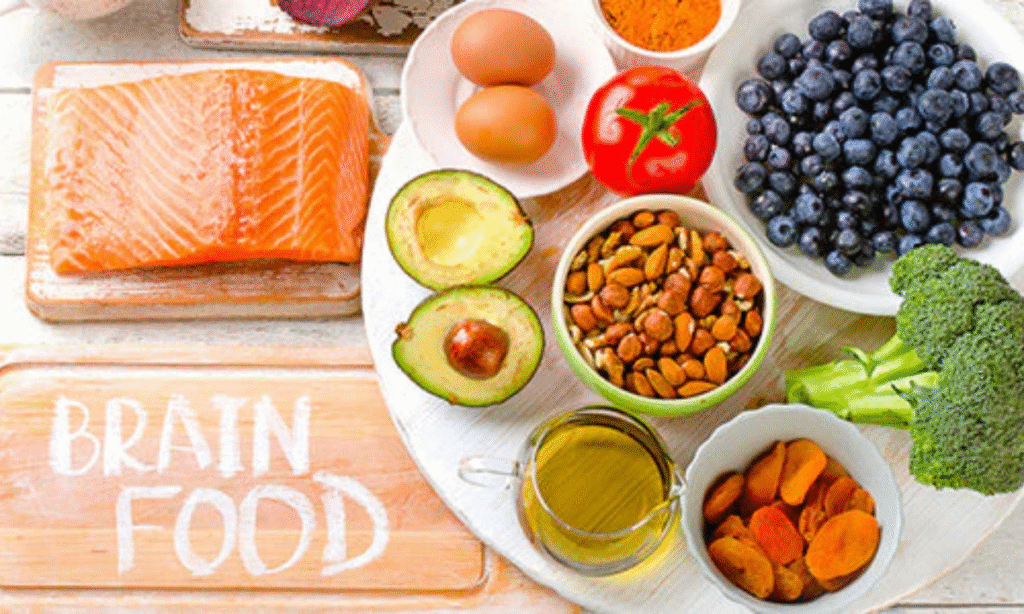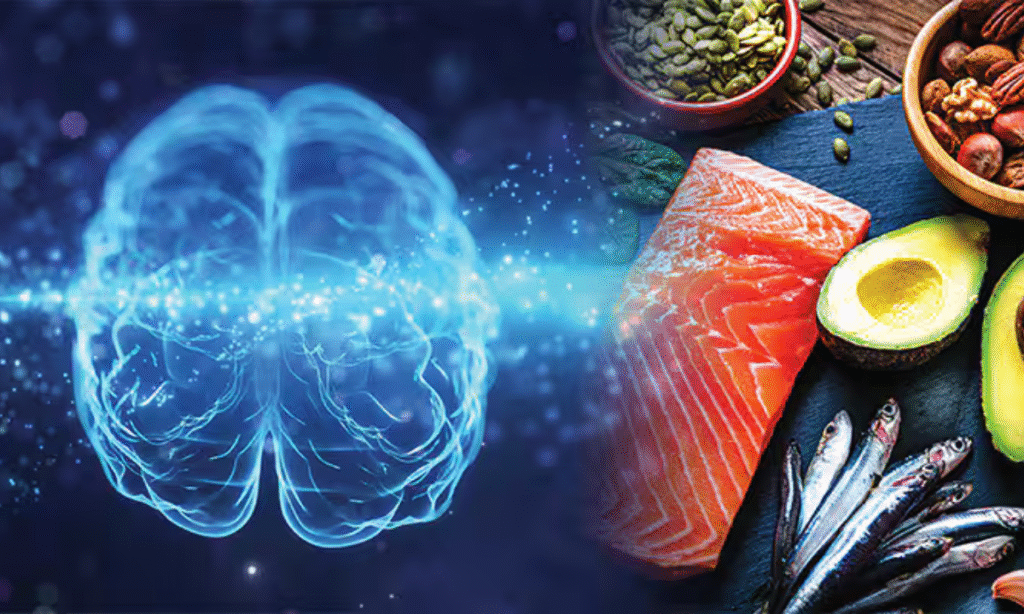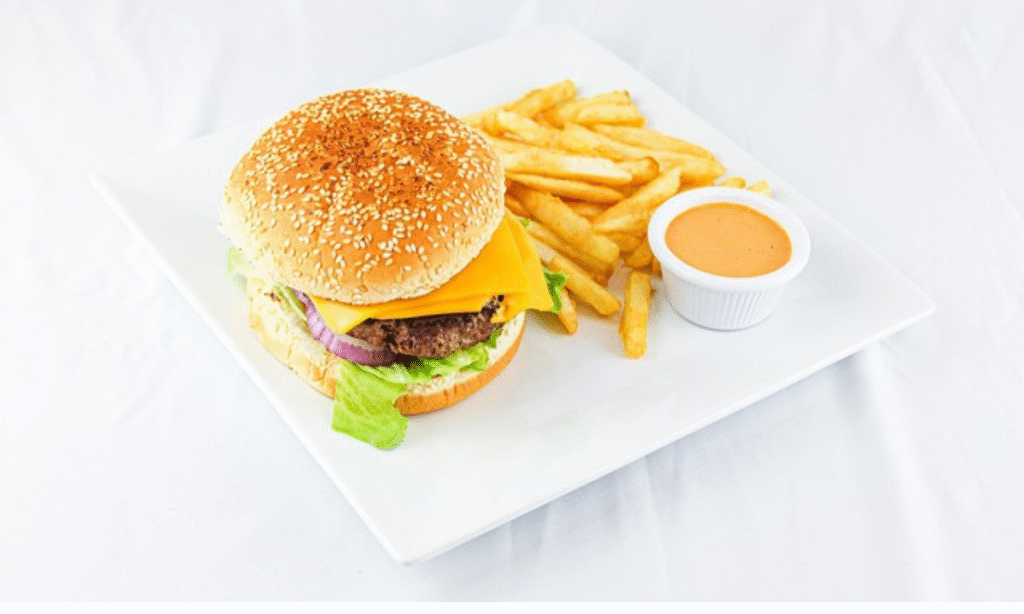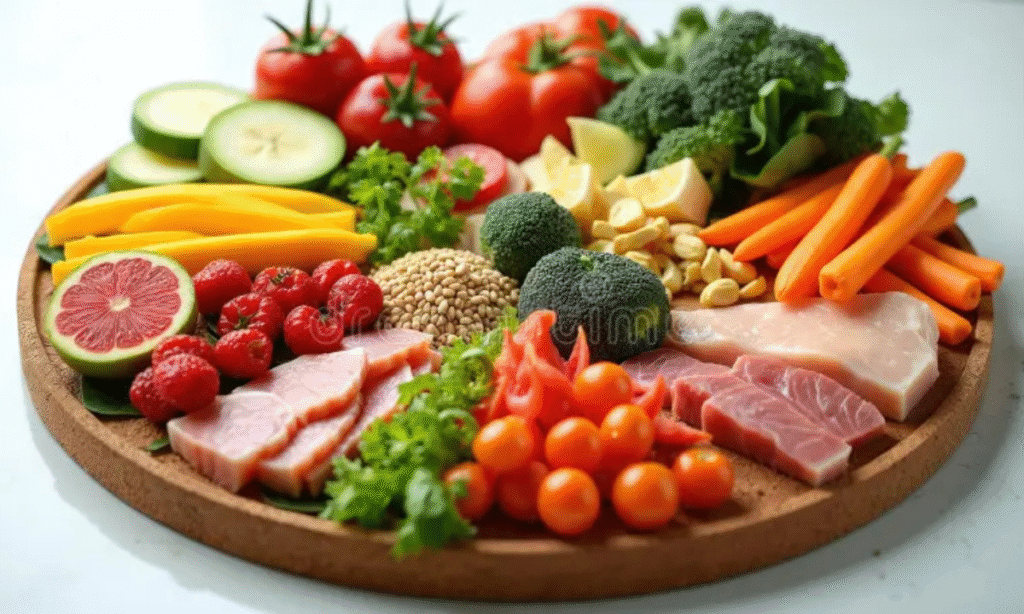Food and mental health are more connected than most of us realize. What you eat doesn’t just fuel your body; it also influences your brain, emotions, and overall mental well-being.
As someone working closely with families at Nutri Activania, I, Avni Kaul, have seen how simple dietary changes can uplift mood, reduce stress, and even improve focus.
Being a dietitian in Delhi, I meet people every day who are surprised at how their eating patterns are shaping their mental state.
In this blog, I will walk you through the link between food and mental health, practical diet tips, and a few examples that may change how you think about your plate. The last section has something you will definitely want to try!
The Link Between Food and Mental Health

Our brain needs a constant supply of nutrients to function well. Just like poor-quality fuel harms an engine, junk food and sugary snacks can negatively impact the brain.
Nutrients like omega-3 fatty acids, vitamins, and minerals play a big role in managing mood, energy, and stress levels.
Food and Mind: How They Connect

Have you ever noticed how heavy fried meals make you feel sluggish, while a fresh fruit salad lifts your energy? That’s the food and mind connection in action.
Foods rich in antioxidants, B vitamins, and protein help the brain release neurotransmitters like serotonin and dopamine, which regulate happiness and calmness.
How Food Improves Mood
Here’s a quick look at foods that are proven to boost mental well-being:
| Nutrient | Food Sources | Mental Health Benefit |
|---|---|---|
| Omega-3 Fatty Acids | Fish, walnuts, flaxseeds | Reduce anxiety & improve focus |
| B Vitamins | Whole grains, leafy greens, eggs | Boost mood & reduce fatigue |
| Magnesium | Nuts, seeds, dark chocolate | Helps relaxation & lowers stress |
| Probiotics | Yogurt, kefir, fermented foods | Improve gut health & mental balance |
Eating the right food doesn’t just keep your body fit; it’s one of the easiest ways to improve your mood naturally.
Fast Food and Mental Health

I have often seen people who rely heavily on fast food feel more tired, irritable, or even anxious. Processed meals are usually high in sugar and unhealthy fats and low in nutrients.
Over time, this can increase the risk of depression and mood disorders. That’s why moderation is key when it comes to burgers, fries, and packaged snacks.
Comfort Food and Mental Health

We all crave comfort food during stressful times. While it’s okay occasionally, relying on it daily can create emotional eating patterns.
Instead, I suggest finding healthier comfort choices, like warm soups, herbal teas, or homemade smoothies, that soothe the mind without harming the body.
Practical Tips to Balance Food and Mood

- Keep your plate colorful with fruits and vegetables.
- Stay hydrated; even mild dehydration affects concentration.
- Replace refined carbs with whole grains.
- Plan meals to avoid last-minute fast food temptations.
- Practice mindful eating; focus on every bite without distractions.
My Experience as a Nutritionist

As a nutritionist in Delhi, I have guided students struggling with exam stress, professionals dealing with burnout, and new moms facing mood swings. Many saw remarkable changes in energy and positivity just by making small dietary shifts.
Final Thoughts
The connection between food and mental health is undeniable. What you eat daily shapes how you think, feel, and respond to life’s challenges. By making mindful choices, you can nourish not just your body but also your mind.
If you are looking for personalized guidance, consulting a dietitian in Delhi can help. At Nutri Activania, I, Avni Kaul, have worked with people across all age groups to create diets that support both physical and emotional well-being. Sometimes, the journey to a healthier mind begins with something as simple as your next meal.
FAQs
1. How to improve mental health naturally?
You can improve mental health naturally through a balanced diet, daily physical activity, proper sleep, hydration, and mindfulness practices like meditation or yoga to calm the mind.
2. What type of diet is best for mental health?
A diet rich in whole grains, lean proteins, colorful vegetables, fruits, omega-3 fats, and probiotics is considered best for mental health and emotional stability.
3. How can diet change your mental health?
Food influences neurotransmitters like serotonin and dopamine. Nutrient-rich foods enhance mood, energy, and focus, while excess sugar, processed meals, and unhealthy fats can increase stress and fatigue.
4. Can caffeine affect mental health?
Yes, too much caffeine can increase anxiety, disrupt sleep, and cause irritability. Moderate intake, like one cup of coffee or tea, is usually fine for most people.
5. Are sweets harmful to mental health?
Excess sweets can cause energy crashes and mood swings. Choosing natural sweeteners like fruits, dates, or jaggery-based desserts is a healthier option for both body and mind.


